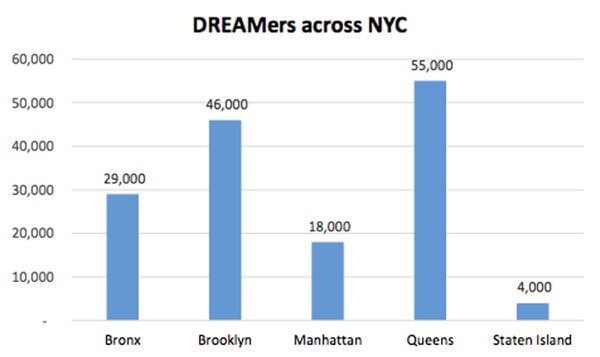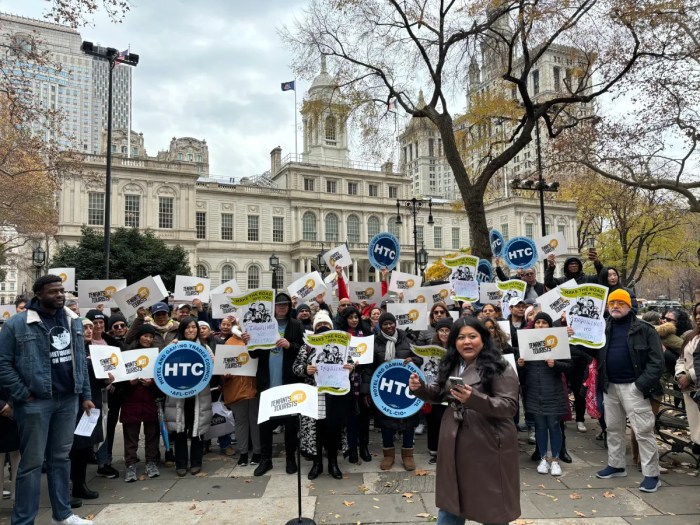By Naeisha Rose
With the government shutdown having come to an end on Monday for at least three weeks, Congress has until Feb. 8 to decide the fate of about 689,000 Deferred Action for Childhood Arrival recipients, undocumented immigrants who entered the country as children and remain temporarily protected from deportation. The Trump administration has said that the protection from DACA will expire on March 5.
If New York loses its approximately 30,000 DACA recipients, it will be at an exorbitant cost to the city, according to a press release from the mayor’s office. DACA recipients, also known as Dreamers, contributed $4.7 billion to the city’s gross domestic product last year and earn $2 billion every year, according to the press release.
There are 55,000 Dreamers in Queens, 46,000 in Brooklyn, 29,000 in the Bronx 18,000 in Manhattan and 4,000 in Staten Island, according to the mayor’s office. About 15 percent of Dreamers are professionals and 33 percent have occupations as service workers, according to the Mayor’s Office on Immigrant Affairs.
They work in varying industries like education and health services (10 percent), construction, manufacturing and wholesale trade (20 percent) and hotel and food services (24 percent), according to the press release.
Dreamers have a 69 percent participation rate in the labor force, which is higher than the general population’s 65 percent in the five boroughs, MOIA said.
More than 20,000 Dreamers are homeowners or contribute to their families’ mortgage, and nearly one-third are attending college, have graduated or attended some college, according to MOIA.
The DREAM Act, a longstanding bill from which the Dreamers name is taken, would grant lawful status to immigrants brought here as children without documentation. If Congress were to pass it, 150,000 residents in the city would benefit from it, including the 96,000 Dreamers people who would be eligible for status. An additional 16,000 Dreamers would be eligible for protection from deportation, according to MOIA.
More than 16,000 elementary school students and middle-schoolers are among the 150,000.
Democrats, who are in the minority in Congress and are fighting for the bill, have an uphill battle. Until Monday, Republicans in Congress held funding for the Children’s Health Insurance Program hostage in order to get their way in receiving funding for a border wall, canceling visa lotteries, and a host of other measures that continue to grow without action on DACA, according to Senate Minority Leader Chuck Schumer.
CHIP, a mostly federally funded program, provides 9 million children from low- to moderate-income families with low-cost health insurance.
If Republicans continued to hold CHIP hostage to get Democrats to concede on DACA, children in New York and 26 other states would have lost out on the program by March 2018, around the time DACA is set to expire.
Reach reporter Naeisha Rose by e-mail at nrose





































